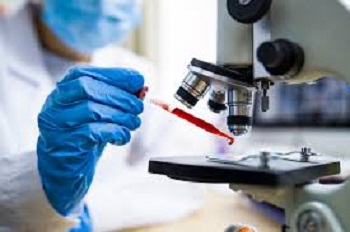Sustainable architecture is a design approach that seeks to minimize buildings' negative environmental impact by maximizing efficiency and moderation
ISLAMABAD: Scientists at Oxford University are racing to develop a vaccine for the coronavirus well ahead of the standard medical timeline. The scientists have expressed confidence in their ability to do it quickly, raising hopes around the world that a vaccine will not have to wait until next year, international media reported.
The first injections of the vaccine being developed by the university’s Jenner Institute in Britain took place last week. Scientists are planning to massively scale up their testing in a little over a month, a time frame that is currently faster than other vaccine development efforts.
Reports said the scientists plan to test their vaccine on more than 6,000 people by the end of May. The team at Oxford said their aim is to produce a million doses of the vaccine, if it proves effective, by September — months ahead of a standard timeline of 12 to18 months routinely quoted by health professionals around the world.
Professor Sarah Gilbert, team leader of the program, said she is “80% confident” the vaccine will work.
Because of that confidence, Britain has begun allocating funds for large-scale development, a move that is financially risky if the vaccine turns out to be ineffective.
“We are going to back them to the hilt and give them every resource they need to give them the best chance of success,” Britain’s Health Secretary Matt Hancock said last week.
The researchers’ confidence comes in part from the knowledge that the vaccine’s basic components have been genetically engineered to be harmless against humans and have been found to be safe in earlier trials.
Initial experiments also indicate the vaccine is effective, including tests that show it can generate a strong immune response in rhesus macaque monkeys.
The vaccine has been made from a common cold virus that has been modified so it cannot grow in people. Scientists have added proteins from the coronavirus that they hope will trigger the human immune system to produce antibodies against the protein, which will then protect against the actual virus.
Trials of the virus’s base components have been ongoing for years as part of an effort to find a malaria vaccine. Gilbert used the same modified virus to make a vaccine against an earlier coronavirus, MERS. Clinical trials of that vaccine are promising.
A traditional vaccine uses a weakened version of a virus to trigger an immune response in humans, and great care must be taken to ensure it is not only effective in humans but also safe.
A major reason the Oxford vaccine can quickly move through trials is that its base components have already undergone rigorous testing in humans.
While early indications show the new vaccine is promising, one complication for the trials could paradoxically be the success of efforts to limit the spread of the disease in Britain.
For the vaccine data to be effective, subjects must be shown not to contract COVID-19 from their surroundings. However, if the disease is not spreading naturally around them, the trial might not be able to show whether the vaccine is making a difference, or it might take longer to reach conclusions.
Researchers say if they cannot get conclusive results in Britain, they might have to begin new trials in another part of the world where the virus is spreading more rapidly.
Meanwhile, researchers at the Wyss Institute at Harvard University, in collaboration with health care, research, and industrial partners, have designed a new, fully injection-molded nasopharyngeal swab that can be manufactured quickly and inexpensively at high volume to help address the nationwide and international shortage of swabs for COVID-19 testing and research.
The swabs are moving into human trials at SUNY Downstate Medical Center and Translational Genomics arch Institute (TGen), an affiliate of City of Hope, which should be completed by the end of next week, and are in preclinical evaluation at six additional hospitals. Data from the two trials will be used to inform larger trials with COVID-19 patients, and California-based medical device manufacturer IPB, Inc. has been working around the clock to ramp up production of the new swabs to reach 200,000 per day by May 15.
You May Also Like
ISLAMABAD: The ruling Pakistan Muslim League Nawaz (PMLN) emerged victorious on most seats in the by-elections, according to
SYRIA: Rockets were fired late Sunday from northern Iraq at a military base in Syria housing a US-led coalition, according to Iraqi security






